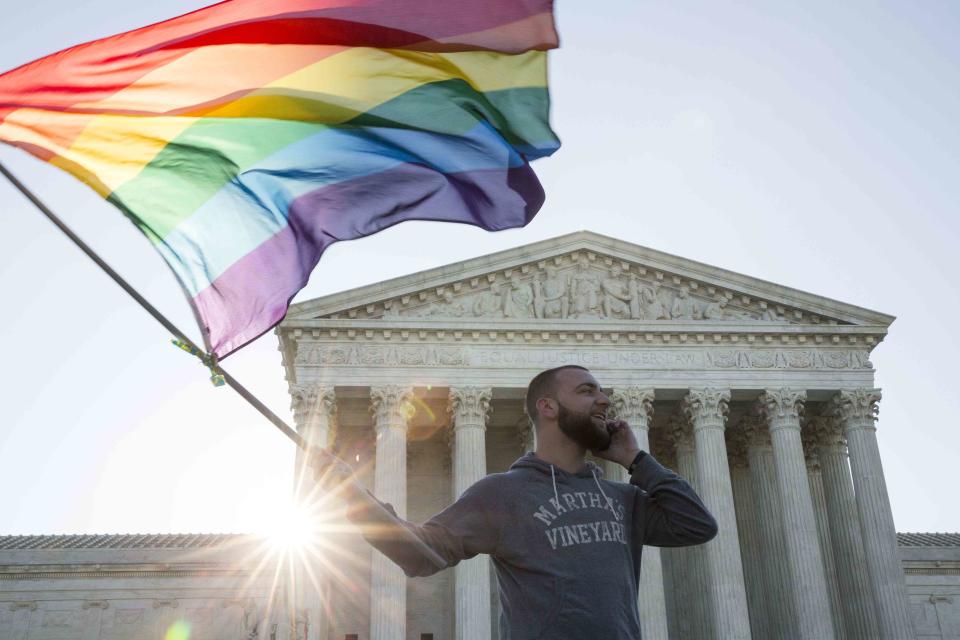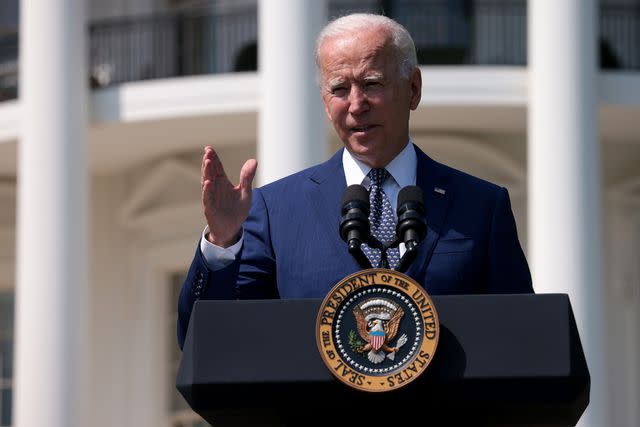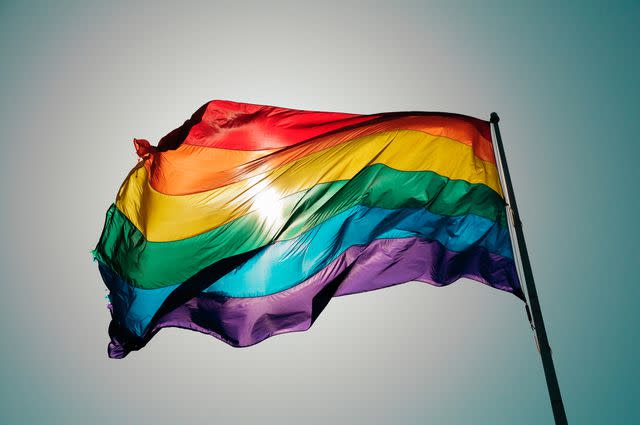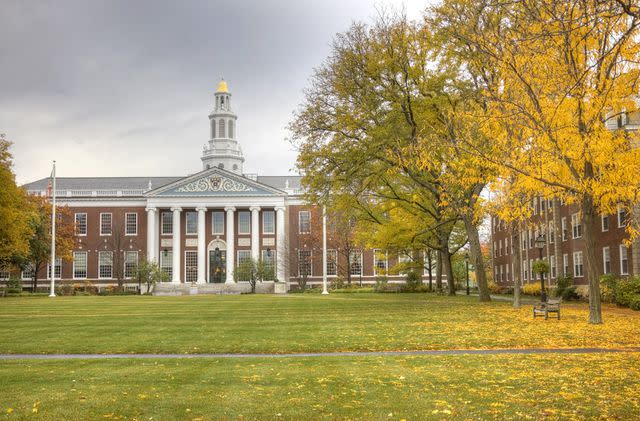3 Major Supreme Court Decisions We're Expecting This Month
- Oops!Something went wrong.Please try again later.
In June, the court is expected to decide a number of cases that will impact everything from student debt relief to LGBTQ+ discrimination

The Supreme Court's 2022 term was one of landmark decisions, due in large part to the ruling in Dobbs v. Jackson Women's Health Organization, which overturned Roe v. Wade and eliminated the constitutional right to abortion.
In recent months, the court has decided a number of significant cases, including one that limited the power of the EPA for a second year in a row. Between now and June 30, a few major cases remain undecided — and rulings will impact everything from student debt relief to LGBTQ+ discrimination.
Here's a look at three major Supreme Court cases to pay close attention to in the coming weeks.
RELATED: Ketanji Brown Jackson Is Sworn into SCOTUS as Nation's First Black Female Justice

Win McNamee/Getty Images
Student Debt Relief (Biden v. Nebraska)
Biden v. Nebraska will determine whether the Biden administration's plan to relieve up to $20,000 in debt from student loan borrowers can proceed as planned.
The Department of Education announced it would provide up to $20,000 in debt relief to Pell Grant recipients with loans held by the Department and up to $10,000 in debt relief to non-Pell Grant recipients, but that plan was immediately challenged in court.
Another suit — Dept. of Education v. Brown — was brought by two student loan borrowers who say they were unfairly excluded from the loan forgiveness plan because they were not Pell Grant recipients.

Norberto Cuenca/Getty Images
Rainbow Flag flies in the Castro.LGBTQ+ Discrimination (303 Creative v. Elenis)
In December, the court heard oral arguments in the case of Lorie Smith, a website designer who owns a company called 303 Creative and is challenging a Colorado law that prohibits businesses from discriminating against LGBTQ customers. Smith, a Christian, has argued she should not be forced to design wedding websites for LGBTQ couples.
With its ruling, the court will shape whether American businesses can legally deny service to LGBTQ people under the First Amendment.
303 Creative v. Elenis echoes the 2018 Masterpiece Cakeshop v. Colorado Civil Rights Commission case, in which the Supreme Court sided 7-2 with a baker who refused to make a wedding cake for a gay couple. During that case, the couple told PEOPLE: "We don’t want another loving couple to have to go through what we did. It’s not about the cake; it’s about us being discriminated against because we’re gay."
The two dissenting justices in the 2018 ruling were Ruth Bader Ginsburg and Sonia Sotomayor. Ginsburg wrote in her dissent that the cake shop owner "declined to make a cake he found offensive where the offensiveness of the product was determined solely by the identity of the customer requesting it."

Affirmative Action (Students for Fair Admissions v. University of North Carolina and Students for Fair Admissions v. Harvard University)
These two cases both deal with affirmative action policies, which proponents argue helps increase opportunities to underrepresented groups, including people of color. Opponents argue that affirmative action unfairly strips white people of those same opportunities.
For decades, universities have had policies that allow them to consider a prospective student's race along with factors such as academic merit, athletics, and extracurriculars. The outcome of these cases could change that, effectively upending affirmative action policies that have in some cases been around since the Civil Rights era.
The way the court rules could have sweeping effects on admissions processes and the makeup of student bodies on college campuses across the country. The ACLU has argued that a decision blocking the use of affirmative action policies "will almost certainly mean a significant drop in the number of students of color being admitted to selective universities."
For more People news, make sure to sign up for our newsletter!
Read the original article on People.
